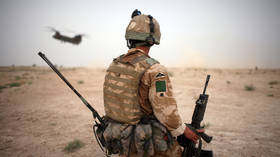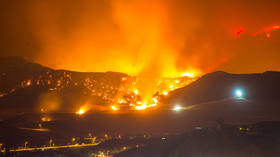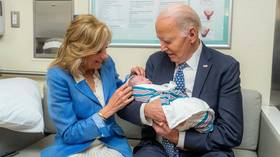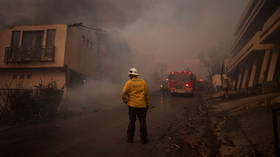Russia-EU summit session kicks off
Dmitry Medvedev has opened the Russia-EU summit in the southern Russian town of Rostov-on-Don. Within the three-hour meeting the sides are to discuss the economy, modernization and security.
Opening the summit on Tuesday, the Russian president expressed hope that the event will become the beginning of the sides’ co-operation in the sphere of modernization.
“In Stockholm we discussed one good topic – the idea of partnership for modernization – and agreed that it will become one of the points for our co-operation in the upcoming years. Today we will announce the beginning of this work,” Dmitry Medvedev said.
The Russian president has also outlined other issues to be discussed during the meeting.
”We will talk economics, emergency situations, global European security, regional problems,” he said. “Of course, we will touch upon the Iranian nuclear program, Afghanistan, Pakistan and will talk the Middle East settlement.”
In turn, the head of the European Commission, Jose Manuel Barroso, expressed his condolences over the latest explosions in the Moscow Metro in March. Terrorism is a common threat, he noted, and the sides should tackle this problem together.
The summit also sees the first meeting between Russian President Dmitry Medvedev and EU President Herman Van Rompuy since the Lisbon Treaty came into effect last year.
Economy high on agenda
The economy and economic cooperation between Russia and the EU are importants items on the agenda. Now many EU members are struggling financially after the credit crunch – Greece, Portugal and Ireland, as well as other countries, are looking for some stability.
Energy security is also one of the topics to be discussed.
According to the Russian envoy to the European Union, Deputy Foreign Minister Aleksandr Grushko, Russia is very interested in European financial stability as Europe is Russia’s biggest financial partner. It means Russia is expected to offer some ways of helping Europe.With the economic crisis ravaging the European Union, it seems they, too, are ready to get off their high horse and aim for better ties with Russia.
“During the first wave of the global financial crisis, the EU and Russian Federation had worked together where their interests were converging and their presence in the international forum was very constructive and important,” said Denis Danilidis, press secretary of the EU representative in Russia. “I hope this will also be the case of this summit in the future.”
Russia, in turn, is very keen on European stability.
“We are not interested in any turmoil in EU financial markets because – let me stress it again – the EU is our chief economic and financial partner,” announced Grushko. “Stability in our partners’ markets will give Russia more opportunities for economic growth through international cooperation.”
Most of the summit's agenda does seem to concern all things financial.
Both sides seem eager to push for stronger economic ties – for the EU, this could be a great help for its struggling economies, and for Russia, a boost in foreign investments.
But the new European leadership is already putting some spokes in the wheels of cooperation, saying the potential visa-free regime for Russia will not be included in the talks.
Visa free travel, whether it's part of the talks or not, remains one of the top priorities for Russia.
Russia's representative to the EU, Vladimir Chizhov, noted that the existing visa facilitation agreement that was signed four years ago, “together with the Russia-EU agreement on readmission, has allowed the two sides to launch visa-free negotiations, which have so far covered the various technical aspects on an expert level. We have reached a point, in my view, where what we need is political will on both sides for breakthrough.”
EU representative in Russia Fernando Valenzuela talked to RT about the outcomes of the summit.
“I think from that discussion it came out that the euro is fundamentally a strong currency…very strong and stable,” Valenzuela said. “On the other hand, President Medvedev expressed the Russian support of the euro and of European efforts to make necessary adjustments. So I think that’s the best way in which support can be shown and expressed.”
“For EU – we see this as a holistic approach, which is not only about technology or only about investment,” Valenzuela maintained. “It’s also about the conditions in which investment has to take place, also about further Russian integration into the world economy. And at the same time, something which we can be of mutual use because everybody has to modernize, and we also have to modernize, so it’s an exercise in which we are partners.”












